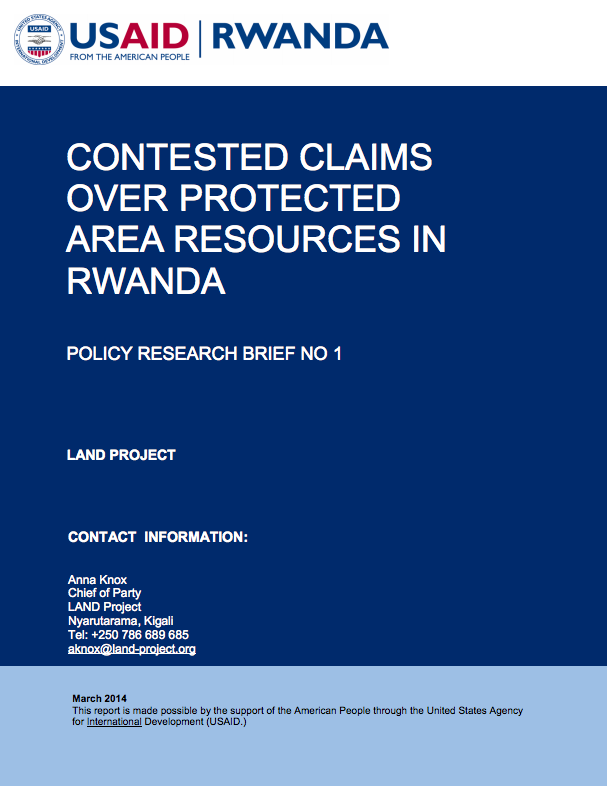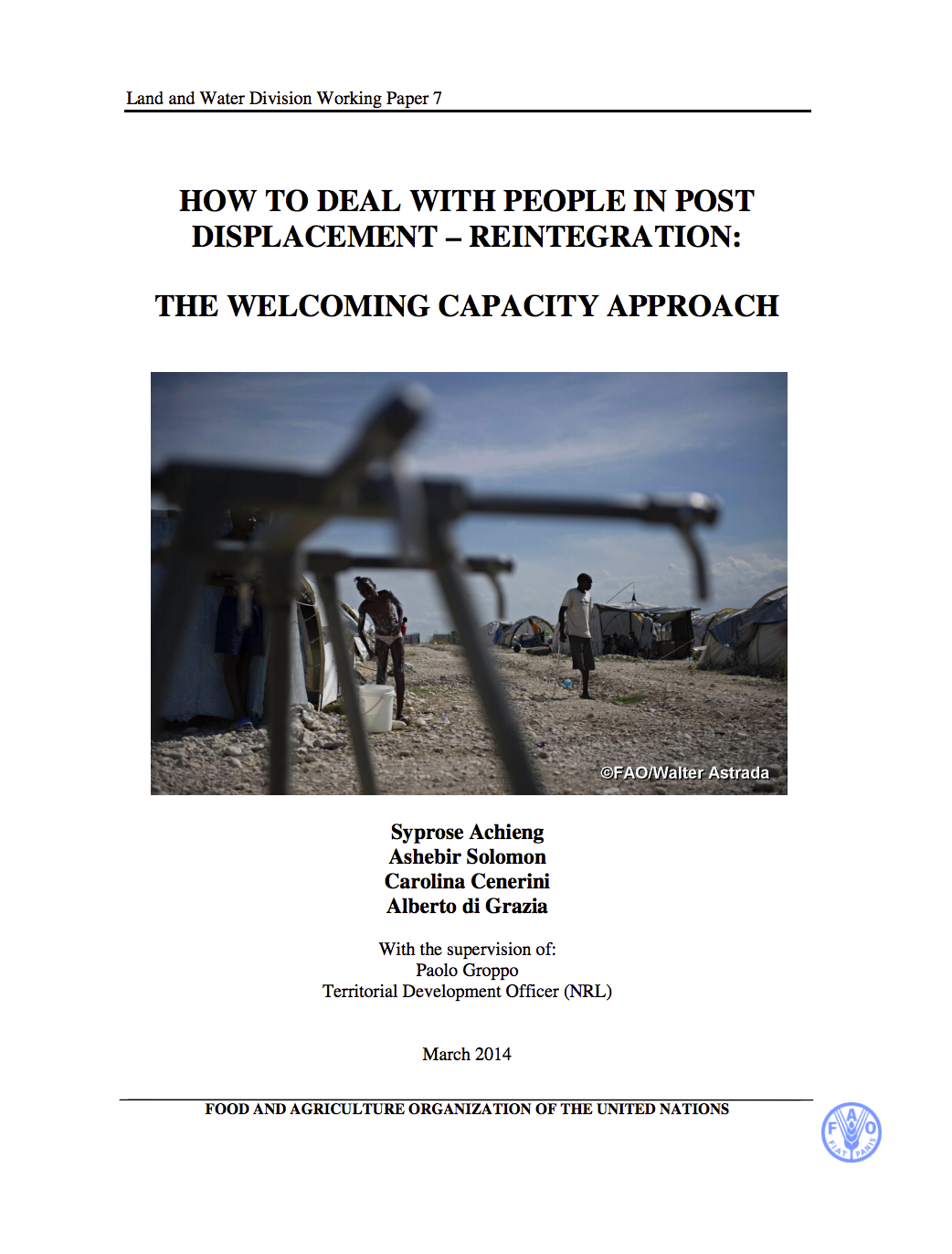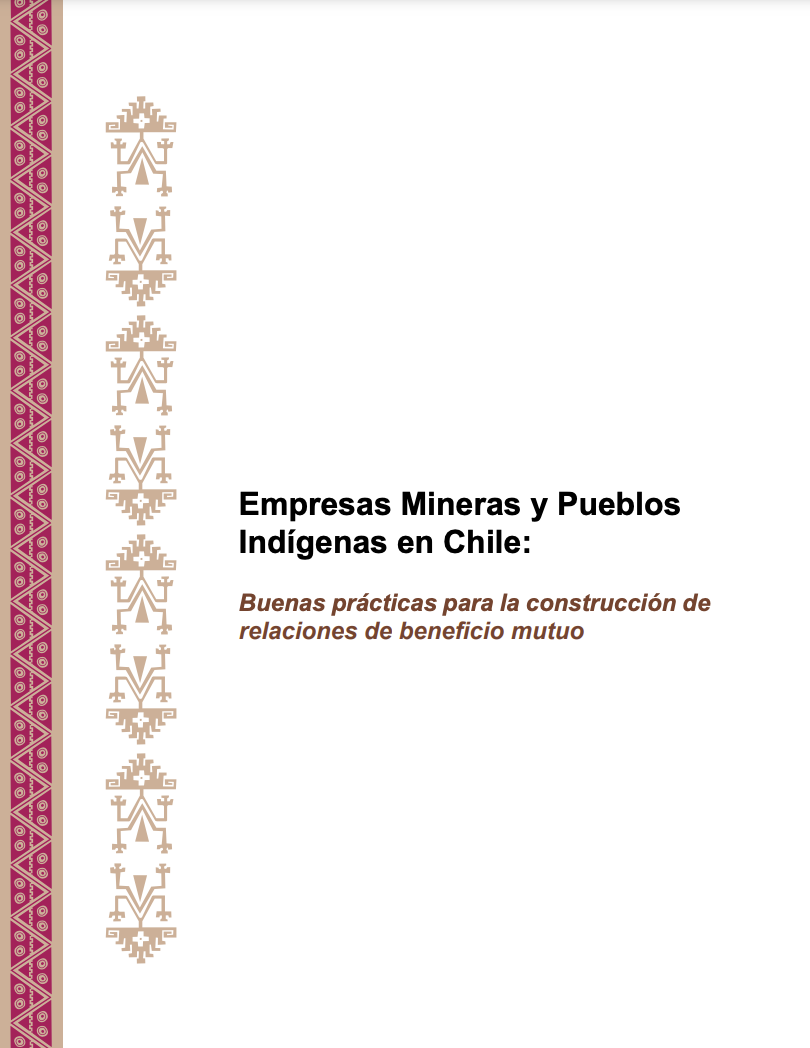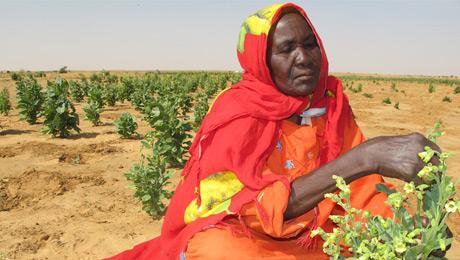LAND Project Policy Brief: Contested Claims over Protected Area Resources in Rwanda
The aim of this policy brief is to describe current and historical conflicts over rights to land and natural resources within and surrounding protected areas in Rwanda. We examine the roots of contested claims between citizens and the State and offer some potential avenues for resolving these conflicts in ways that consider both the priorities of the Government of Rwanda and the rights of local communities that depend on protected area resources.










